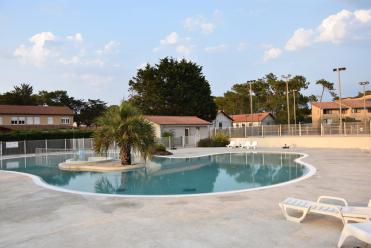
- Home
- Responsible tourism
Responsible tourism
Beginning of Cévéo's environmental policy
Cévéo vacation villages certified by the European Ecolabel
Consumers look for sustainable travel options
What is sustainable tourism?
According to the World Tourism Organization (UNWTO), sustainable tourism is defined as
"tourism that takes full account of its current and future economic, social and environmental impacts, by meeting the needs of visitors, professionals, the environment and host communities."
In other words, it's alternative tourism that seeks to minimize its negative effects while maximizing its local benefits. It is based on three fundamental pillars:
Environmental: Preserving biodiversity and natural resources, reducing waste production and promoting recycling, limiting greenhouse gas emissions, encouraging soft mobility (cycling, walking, public transport).
Economic: The reuse of materials, the use of renewable raw materials, short circuits and local producers.
Social: Respect for local populations and their way of life, the creation of sustainable jobs in the area, social inclusion through vacations accessible to all.
A Cévéo commitment
Tourism is now one of the world's most dynamic economic sectors. France, the world's leading tourist destination, welcomes millions of visitors every year, attracted by its rich heritage, diverse landscapes and culture. However, this activity is not without consequences: travel, energy consumption and waste production linked to tourism have a significant impact on the environment and contribute to climate change.
Since 2006, Cévéo has placed sustainable development at the heart of its strategy. Our commitment is reflected in the implementation of an environmental policy, accompanied by concrete actions to promote eco-responsible tourism throughout our vacation villages.
We work every day to optimize water and energy consumption in our accommodations, reduce and sort waste,
But for Cévéo, sustainable tourism isn't just about the environment: it's also about social and solidarity tourism. We defend the right to holidays for all.
This is why we set up accessible offers in conjunction with works councils, associations and local authorities, as well as accommodation and services adapted to people with disabilities or reduced mobility.



